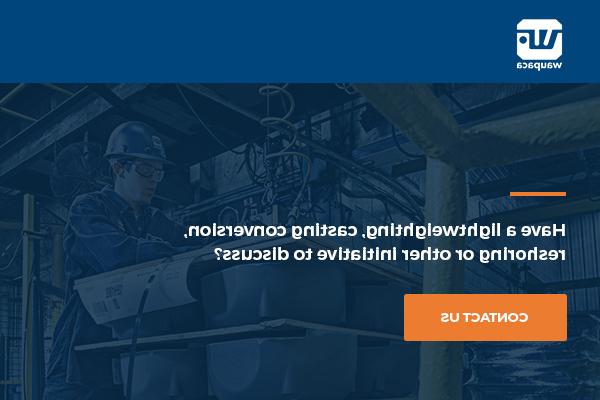如果美国与中国的贸易如此不公平,为什么通用汽车是中国最畅销的汽车?
Tim Fernholz | Quartz
Ahead of a high-stakes summit with Chinese leader Xi Jinping, 唐纳德·特朗普(Donald Trump)领导的白宫明确表示,对中国对进口美国汽车征收高关税感到不满. 报告称,这些因素造成了美国对华贸易逆差总额 $347 billion last year. 前奥巴马经济顾问萨默斯在最近的一次会议上也提到了这个问题 with China’s premier (paywall), Li Keqiang.
而美国对进口汽车和汽车零部件的税率最高为2%.5%, China charges tariffs of between 21% and 30%. 这给了希望在中国销售汽车的外国汽车制造商一个很大的动力,让他们在中国制造汽车,以避免进口费用. 但中国也要求外国子公司与中国公司成立对半持股的合资企业. 当然,这些地方随后会成为中国工程师学习外国技术的教室.
这并不完全是任何人对“公平”贸易的定义,但这种情况是有逻辑的. 该制度于2001年中国加入世界贸易组织(wto)后开始发挥作用. At the time, Chinese industry was much further behind America’s. 当时的想法是,未来几轮WTO谈判将进一步降低中国的贸易壁垒, but global trade talks have stagnated completely.Ironically enough, therefore, 对美国来说,这种“不公平”的局面是全球化磕磕绊绊的产物, 而不是特朗普政府所描绘的不屈不挠的前进. 任何试图说服中国放弃贸易保护的努力现在都将来自最近记忆中最具保护主义色彩的美国政府.
更复杂的是:现在中国是全球最大的汽车市场, 美国公司不愿意大声抱怨不公平的规则,因为担心被完全切断——美国公司及其合资企业在市场上占有很大份额.
看看通用汽车(General Motors)最新的年度报告就知道了,该公司在中国的汽车销量超过美国.9 million) than in the US (3 million) and saw its China business grow 13% last year; one in 10 cars sold in China was a GM. “Maintaining good relations with our joint venture partners, which are affiliated with the Chinese government, is an important part of our China growth strategy,” the report said. Ford, meanwhile, earned $1.5 billion in China last year, and estimates that it has 4.2% of the market.However, trade data suggest that high tariffs aren’t that much of an obstacle to direct car sales; what matters is quality. Chinese car sales to the US, while growing, 仍然很小,因为中国汽车往往达不到美国的标准, 而美国对中国的汽车出口在2012年至2014年间几乎翻了一番, before slipping again in the last two years. 按照这一标准,美国对中国的汽车贸易是顺差,而不是逆差.
Factoring in the whole global supply chain—not just cars, 但汽车零部件和车身——让情况看起来有所不同. 美国公司正利用低关税优势,在美国或墨西哥完成汽车组装之前,先进口中国制造的汽车零部件. Taking all that trade into account, however, 美国汽车贸易去年实际上出现了4.2亿美元的小幅顺差. Under the current regime, the gap is shrinking; in the last five years, total US audio industry exports to China have grown 59%, while Chinese imports have grown 65%.
These figures reflect the fact that for US carmakers, like for other US multinationals, manufacturing parts abroad, where labor costs are much lower, can reduce costs and increase profits. 他们很可能会效仿苹果(Apple)等科技公司,将更多的制造业转移到海外, 但这样做会招致主导美国劳动力的工会在政治和经济上的愤怒.
还有运输的问题:为了节省运输成本,最后的组装通常在汽车销售的市场进行, since completed cars are bulky. These costs are one reason some other foreign carmakers, such as Volkswagen and Toyota, 尽管美国对进口汽车的关税很低,他们还是在美国建厂了吗.但即使他们愿意承担更多的政治压力,将工作转移到国外, 美国汽车制造商希望放宽有关利润的规定,以及它们必须事先与中国合作伙伴分享的信息.
美国各派议员将听到工人和投资者都表示这些规定不公平, 并敦促总统找到一种贸易制度,将更多的投资和更多的就业机会吸引到供应链的美国一方. But it’s not clear what leverage they’ll have, with Japanese, Korean and European automakers are competing for market access, too.
To the Chinese, meanwhile, the US carmakers’ success in their country despite the high tariffs and joint-venture rules reinforce the need for those protections; arguably, 如果没有他们,中国汽车业将更加脆弱. 毕竟,没有哪个中国汽车品牌能像通用汽车(General Motors)在中国那样主导美国市场.奥巴马政府曾希望《威尼斯注册送38元》(Trans-Pacific Partnership,简称tpp)能赋予美国与中国更大的谈判能力, by opening Malaysia and Vietnam to US car sales. 美国汽车制造商拒绝了该协议,因为它也让日本和其他国家更广泛地进入美国市场. 无论如何,特朗普上任后不久就让美国退出了该协议. 但目前仍有一项针对中国补贴汽车零部件生产商的悬而未决的WTO挑战, 这可能是新政府的民族主义贸易谈判代表发泄怒火的地方.
If the new administration listens to American companies, as they usually have, the advice may well be: Tread lightly; you’ve been warned already. “我们不希望看到两国之间爆发任何贸易战,” Li, the Chinese premier, said earlier this month. ”That would not make our trade fairer.”

